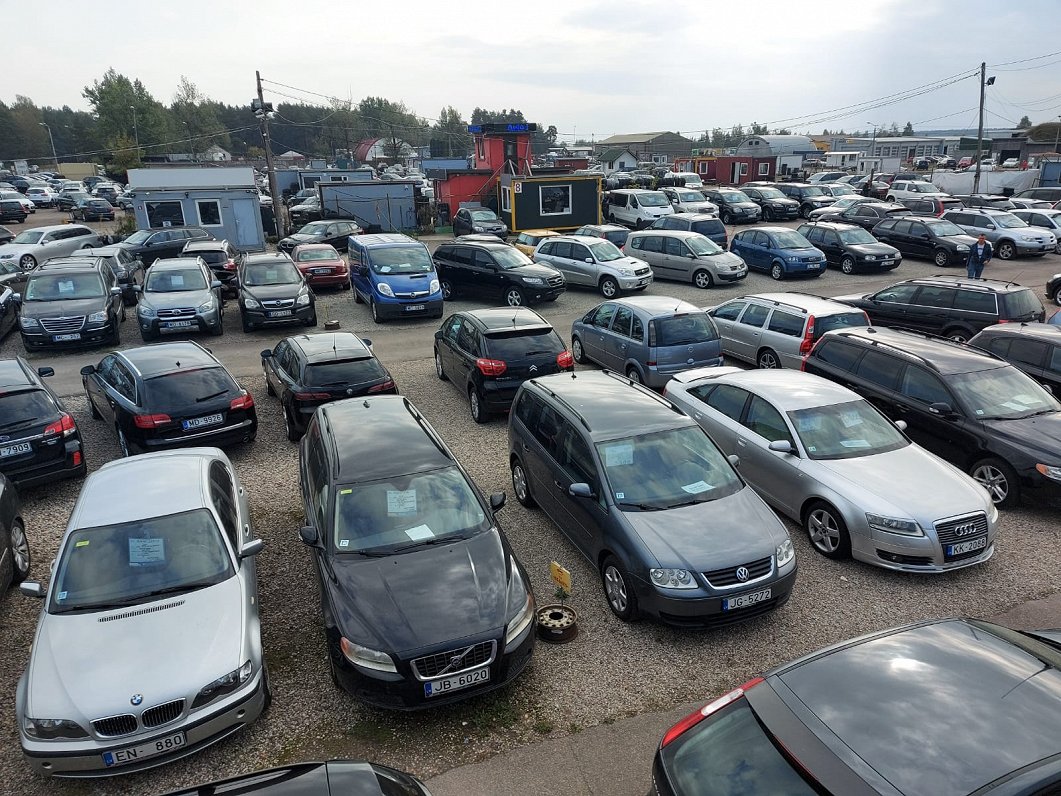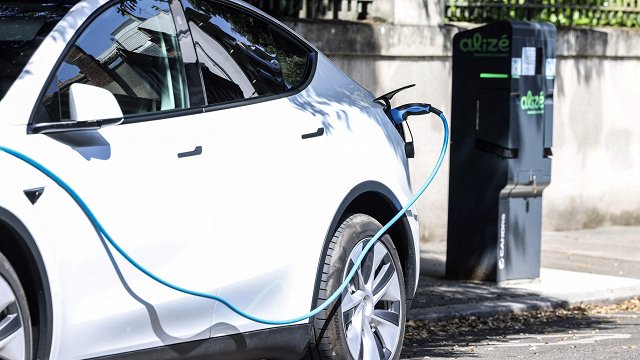Transport Ministry guidelines for the transport sector show that greenhouse emissions must be reduced by 18% by 2023 and by 23% by 2027. However, the Ministry itself does not have any calculations how to achieve that, so the calculations made by the Automotive Association are the first to conclude that without a drastic change in road transport policy, and even with it, the objectives cannot be achieved.
The chair of the association, Andris Kulbergs, said that the slogans on the electrification of railways and the “greening” of public transport are "populist and do not withstand criticism", because, for example, the railway represents only 4% in the transport sector, while the personal vehicle sector accounts for 86% of road transport. Meanwhile, Latvia's car fleet, on average 15 years old, is one of the oldest in Europe.
In addition, other countries are flooding Latvia with their diesel products when switching to greener modes of transport. Diesel transport already represents 67% of the local car fleet, while the share of the newly imported cars is around 85%. If nothing is done, emissions will even grow, estimates the association.
Without any change, road transport emissions could even grow by more than 8.4% by 2027, rather than decreasing.
The Deputy State Secretary of the Ministry for Environmental Protection and Regional Development (VARAM) Alda Ozola admits that the reduction of emissions is binding on Latvia and the transport sector is indeed among those where the biggest cuts should be achieved.
“If Latvia as a whole is unable to meet these emissions targets – they are already set for each year – two options are available. Either one sector is doing more, such as agriculture, but it is also unlikely, or it is necessary to buy missing emissions allowances from another Member State, or there is an opportunity to borrow from the coming years, but it is not a very smart and sustainable solution. In fact, emission allowances are also money and have a pretty high value,” said Alda Ozola.
Failing to meet the targets, Latvia may also have to respond to the European Court, and fines can be measured at tens of millions of euro. Therefore, there is cause for concern as to whether the objectives are enforceable.
Ministry of Transport does not see such a grim scenario. Dins Merirands, Deputy State Secretary of the Ministry says that the calculations by the association have been carried out from the point of view of the organization in question, where private transport is the main concern.
“As in any situation – one has a part of the truth and the other has another part,” he said.
The figures cannot be substantiated by the Ministry of Transport, but allegedly they do not take into account the need to change people's habits, for example by encouraging a transfer from private to public transport and switching to an electric vehicle, for which the Ministry of Transport currently is developing a network.
The determination depends on the political initiative. However, Transport Minister Tālis Linkaits (New Conservative Party) did not agree on the subject, rather directing responsibility to other ministries. When the Transport Minister proposed higher taxes on more environmentally damaging cars, protests ensued. Therefore the Ministry of Transport wants to leave the tax decisions to the Ministry of Finance while the FM is waiting for the Ministry of Transport.
“As soon as we receive the proposals from the Ministry of Transport, the Ministry of Finance will give a detailed opinion,” said Finance Minister Janis Reirs (New Unity).
Similarly, the Minister for Environmental Protection and Regional Development, Arturs Toms Plešs (Development/For!), said that the Ministry of Transport has the main responsibility in this sector. However, he acknowledged that there is no clear division at national level on how much emission reductions should be achieved by which sector, but it is clear that the transport sector plays a key role, because in Latvia it has a more significant share of emissions than in Europe on average.
"Transport issues and the problem of reducing emissions in this sector are difficult due to many circumstances. There is an old car fleet, a relatively high import of used cars, how much we use renewable energy sources. And what is the breakdown in how we move everyday via private vehicles and public transport. Consequently, the solution that is needed is a complex one,” Plešs said.
The situation is even more complicated when it comes to the reasons why there are so many old cars in Latvia. The dealers of the used cars indicate that the economic situation of the population must be taken into account.
“If people drive older cars, there is something very well-founded that forces them to buy older cars. Everyone wants to drive a new car, but not every one can do it, very often it's objective, that's how big our purse is," said used cars dealer Uģis Vītols.
The auto association recommends the introduction of support measures. For example, when scrapping of the old car, grant €2,500 for the purchase of a more nature-friendly car. Various tax exemptions, such as the VAT exemption for newer cars and electric and hybrid vehicles, could also be introduced, but there are no discussions in the government about these or their options at the moment.
Business representatives worry that this can mean more severe last-minute decisions.
“We have been confronted historically by the fact that on that “D Day”, for example, in 2029, when all the targets have to be met in 2030, we will suddenly wake up and then take such drastic steps that will affect the whole business environment – entrepreneurs, owners and drivers – with taxes and restrictions,” said Vītols.






























